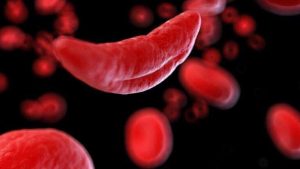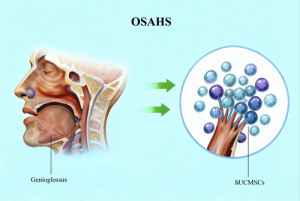Cell transplantation, March 27, 2025
A recent study by Zhao et al. (2025), published in Cell Transplantation, has demonstrated the robust and lasting therapeutic effects of human umbilical cord–derived mesenchymal stromal cells (hUC-MSCs) in a mouse model of food allergy. This discovery paves the way for the development of next-generation cellular immunotherapy for chronic allergic diseases.
Food Allergy: An Unresolved Challenge
Food allergy (FA) is an IgE-mediated hypersensitivity condition with symptoms ranging from mild discomfort to life-threatening anaphylaxis. Current approaches, such as allergen avoidance or specific immunotherapy, have not yet provided long-term effectiveness. Therefore, researchers have turned to cellular therapy—particularly hUC-MSCs—due to their natural immunomodulatory properties.
Study Design and Methods
Model: BALB/c mice were sensitized to ovalbumin (OVA) via oral administration combined with aluminum hydroxide to induce a Th2-mediated immune response.
Treatment: After sensitization and re-exposure, mice received a single intravenous dose of hUC-MSCs (1 million cells/mouse).
Groups: Control group, untreated FA group, FA group treated with hUC-MSCs, and a positive control group (anti-IL-4 treatment).
Assessments:
- Clinical symptoms: Diarrhea, hypothermia, and acute allergic reactions.
- Serological markers: Levels of OVA-specific IgE and IgG1.
- Cytokine levels in spleen and intestinal tissues: IL-4, IL-5, IL-13, IFN-γ, and IL-10.
- Immune cell infiltration: Mast cells and eosinophils.
- Regulatory T cell (CD4+CD25+Foxp3+ Treg) ratio changes.
Key Findings
Rapid clinical improvement: hUC-MSCs significantly reduced diarrhea frequency, hypothermia, and suppressed immediate hypersensitivity reactions compared to the untreated FA group.
Immunomodulation of humoral and cellular responses:
- Marked reduction in OVA-specific IgE levels in serum.
- Decreased levels of IL-4, IL-5, and IL-13—key Th2 cytokines—in intestinal and spleen tissues.
- Increased IL-10 (an anti-inflammatory cytokine) and Treg cells, indicating inflammation suppression through enhanced immune tolerance.
Reduced immune cell infiltration into target tissues: Significant reduction in mast cells and eosinophils in the intestinal mucosa.
Long-lasting therapeutic effect: The benefits of hUC-MSC therapy persisted for at least three weeks post-treatment, indicating a “continuative effect” not previously well-documented in earlier studies.
Conclusion
- hUC-MSCs effectively modulate immune responses and produce long-term therapeutic benefits in an FA mouse model.
- This cell-based therapy not only alleviates acute allergic symptoms but also restores long-term immune balance, offering a promising new strategy for chronic allergic diseases.
- Further preclinical and clinical studies are needed to validate its efficacy and safety in humans.
This article is summarized and translated from the paper: Zhao, Y., Ding, Y., Wang, Z., Wang, Q., Ye, D., & Luan, Z. (2025). Therapeutic and continuative effects of human umbilical cord–derived mesenchymal stromal cells in food-allergic mice. Cell Transplantation, 34, 09636897251326899.
Link: https://journals.sagepub.com/doi/10.1177/09636897251326899








